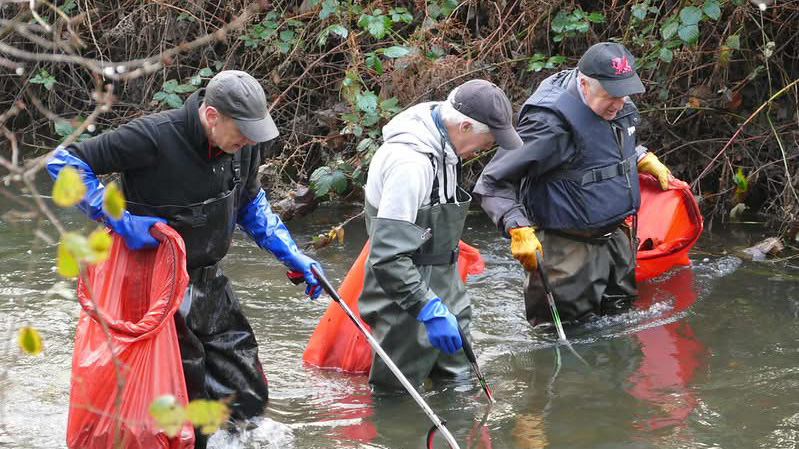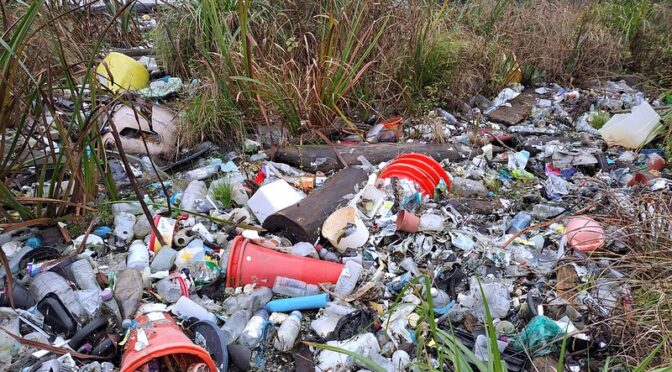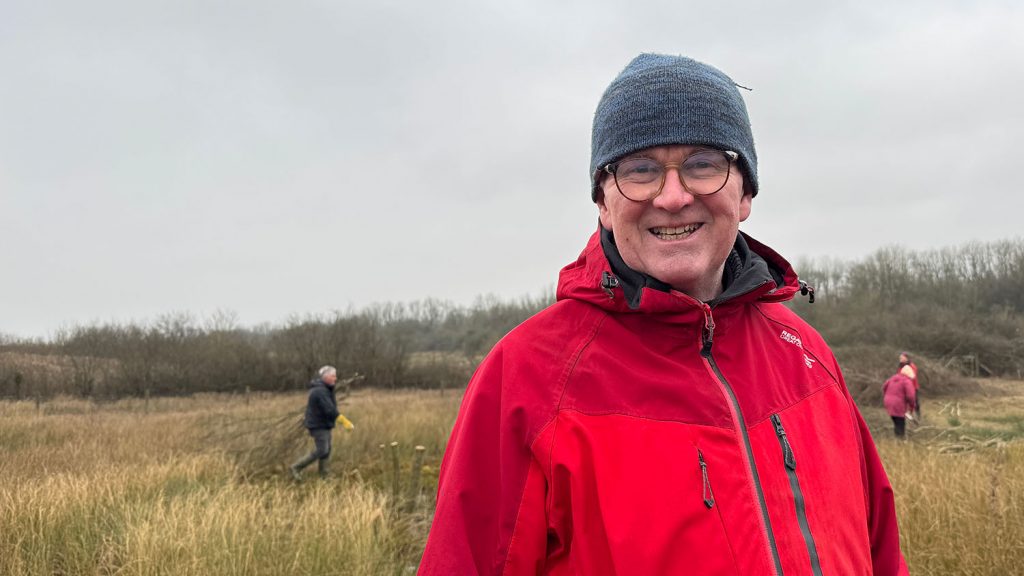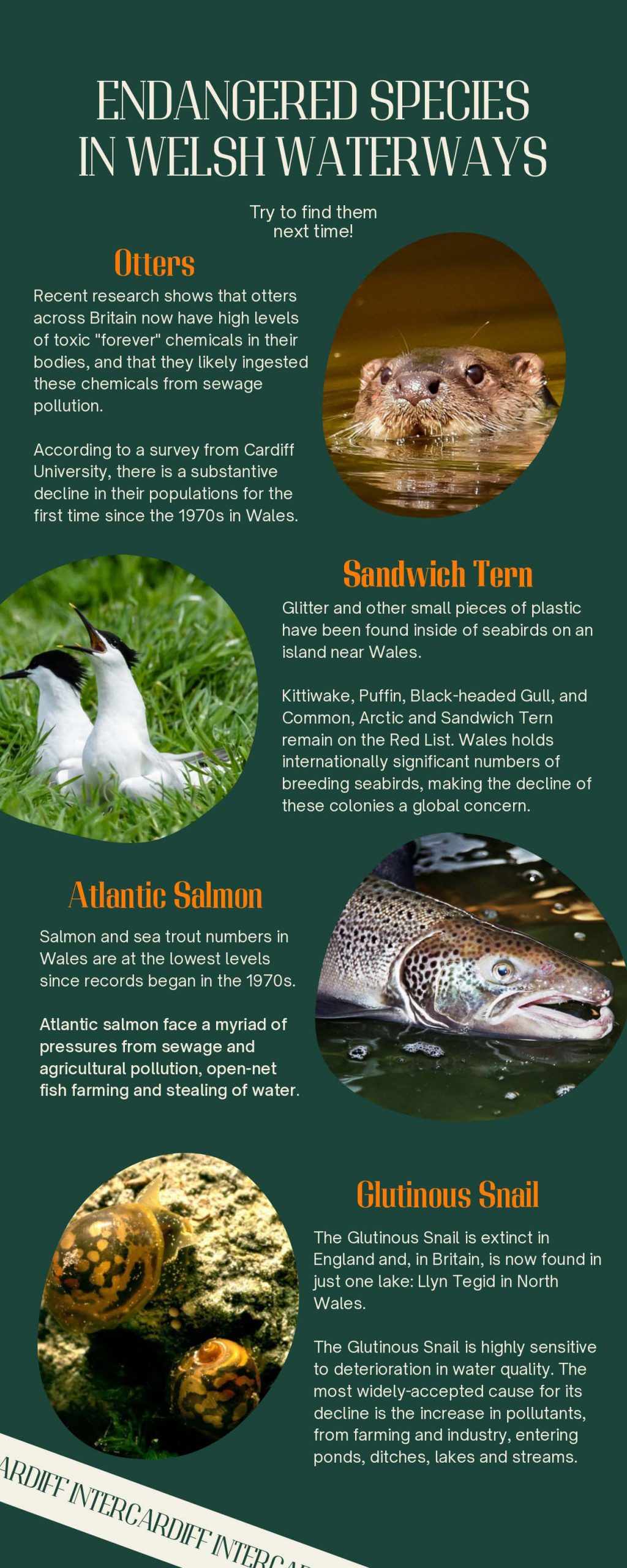Volunteers have collected 17,000 canisters in just two and half years. Can the River Taff survive this level of pollution?

A refrigerator floating in Taff River was an unthinkable sight for people a few years back, but for volunteers at Cardiff’s River Group, fishing out chairs, sanitary pads, canisters and even refrigerators, is a grimly familiar task these days. Each weekend, dozens of their collection bags tell a troubling story of how this Welsh waterway has become a household dump.
“We are the problem, and we are the solution,” said Howard Jukes, a regular volunteer in Cardiff River Group who views the cleanup as more than just environmental work. “A few decades back, no one would buy bottled water or sandwiches wrapped in plastic. Things are too convenient now, but people leave all the inconveniences to nature.”
The River Taff originates from the Brecon Beacon Mountain range and after flowing south for over 40 miles, meets the Cardiff Bay. Throughout its course, the river tells a story of environmental transformation. After recovering from the pollution of the coal mining era of the 1980s, this Welsh waterway now battles a different kind of challenge: household waste, plastic bottles and abandoned refrigerators.
In 2023, the river was polluted by sewage on average four times a day and endured over 13,000 hours of sewage discharge, marking a crisis point in its modern history.

Dave King MBE started the initiative in 2008 after moving to Cardiff. Today, its volunteers range from retired teachers to researchers, professors, accountants and people from almost every walk of life. Every weekend, they gather at spots along the Taff River to collect litter and waste.
“It was just the amount of rubbish coming down in floods,” he said. “When water levels dropped, everything was left on the riverbank. It was spoiling my view initially, I thought I needed to do something about that,” he said.
Cardiff has seen a lot of changes in the past 16 years, from the opening of a shopping mall to the renovation of the stadium. However, King said nothing has changed in the polluted Taff.
“It’s only gone worse. Different types of rubbish emerge each year. The big problem now is nitrous oxide canisters. We’ve collected 17,000 of them in just two-and-a-half years. These discarded canisters, along with plastic bottles, cans, and crisp packets, create choking points along the riverbank.”
The scale of their task is enormous. King explained that a single cleanup can yield anywhere from 10 to over 100 bags of waste, particularly in areas where river currents concentrate the debris. The spot near Channel View Sports Centre has become one of the most problematic sites along the river.

The river’s health has particularly deteriorated since local councils moved to three-weekly waste collections last year. “People choose to drop their household waste directly into the river,” said Matt Conroy another regular at the group.
Recent flooding brought by Storm Bert further exacerbated the problem by making access to riverbank dangerous for volunteers.
“Storms have always existed, but there wasn’t litter 1000 years ago,” King said. “Plastic is a good material, but we abuse it.”

Apart from river cleaning, the group also organizes activities like planting trees and trimming bushes around Cosmeston Lake to support ground-nesting birds.
According to Sharon Mullins, the countryside ranger at the lake park in Penarth, the lake has been neglected for six years and faces significant litter issues, especially during the summer months, with up to 100 bags of waste collected after holidays.
Major concerns include disposable barbecues and fishing without licenses, which have required police involvement. The park is home to various bird species, including snipe and woodcocks, and has released 380 captive-bred otters. Volunteers work there every winter to maintain the wetland and create more nesting space for birds. At the end of each summer, they return to clean up litter around the lake, often finding a lot of flammable materials.

King believes that the country’s litter problem must be solved at the source and one way to do it is to bring in a legislation that incentivises returning used cans, plastic bottles and other waste. “We need a deposit return scheme [DRS] for cans and bottles. Countries that have implemented this see drastically reduced litter rates.”
The scheme already exists in many countries where consumers pay a deposit on beverage containers, such as cans and bottles at the time of purchase and get the deposit back when they return them.
In Sweden a standard system for deposits on recyclable plastic bottles and aluminium cans was established by legislation in 1984. The UK government has confirmed that DRS in England, Wales, Northern Ireland and Scotland will be fully implemented by October 1, 2027.
For now, Cardiff’s river protectors continue their weekly vigil, armed with collection bags and determination. As one volunteer said, “Twenty bags of litter aren’t enough, but if we didn’t pick these up, there would be more tomorrow.”
